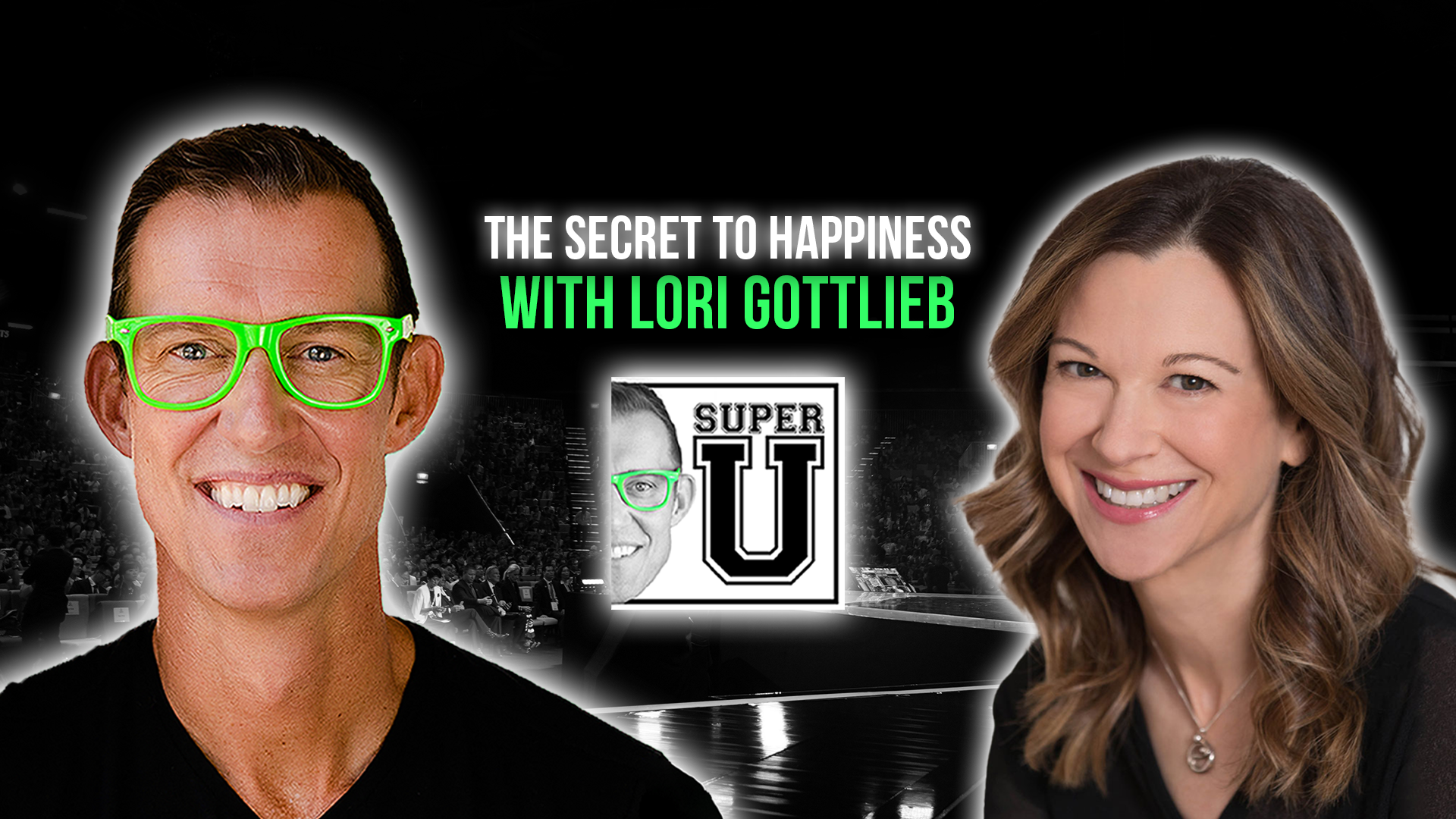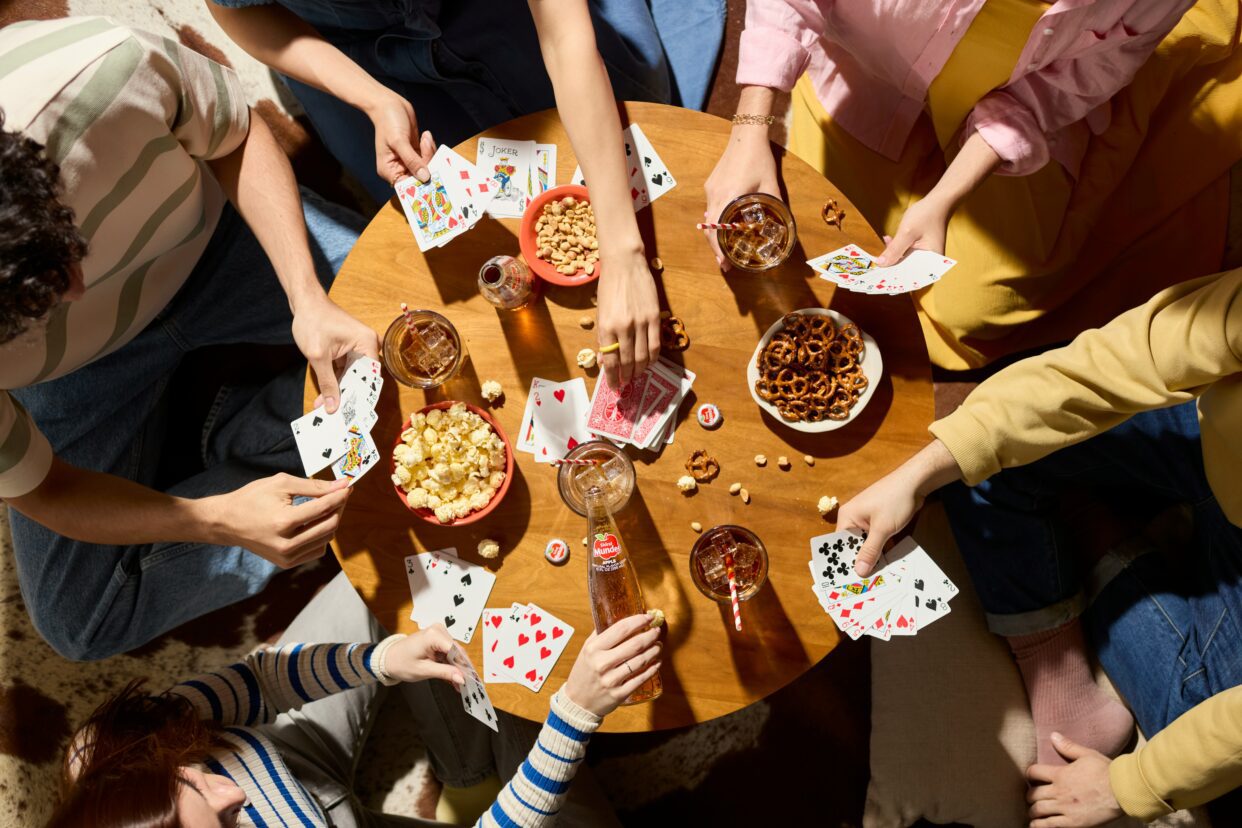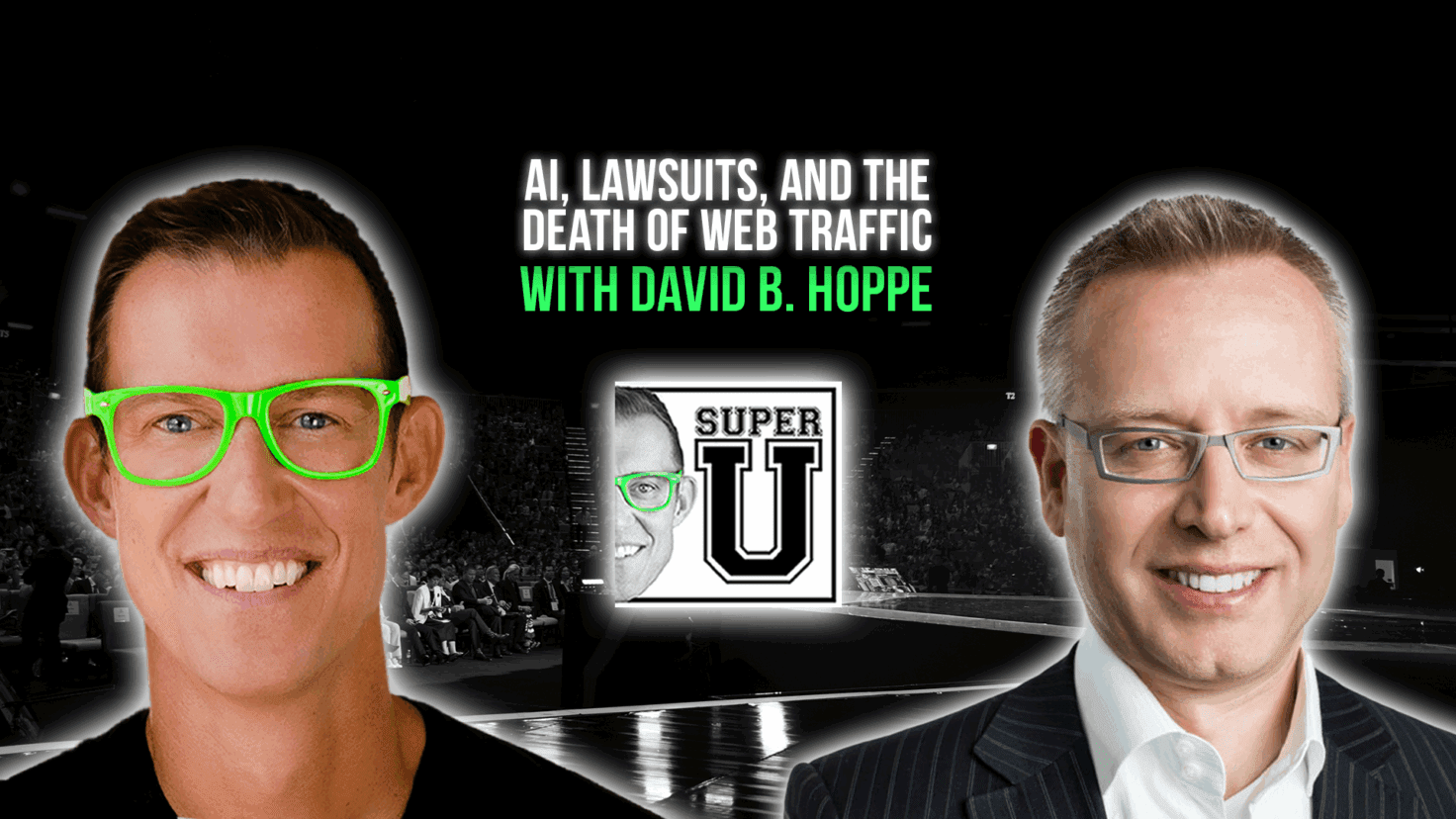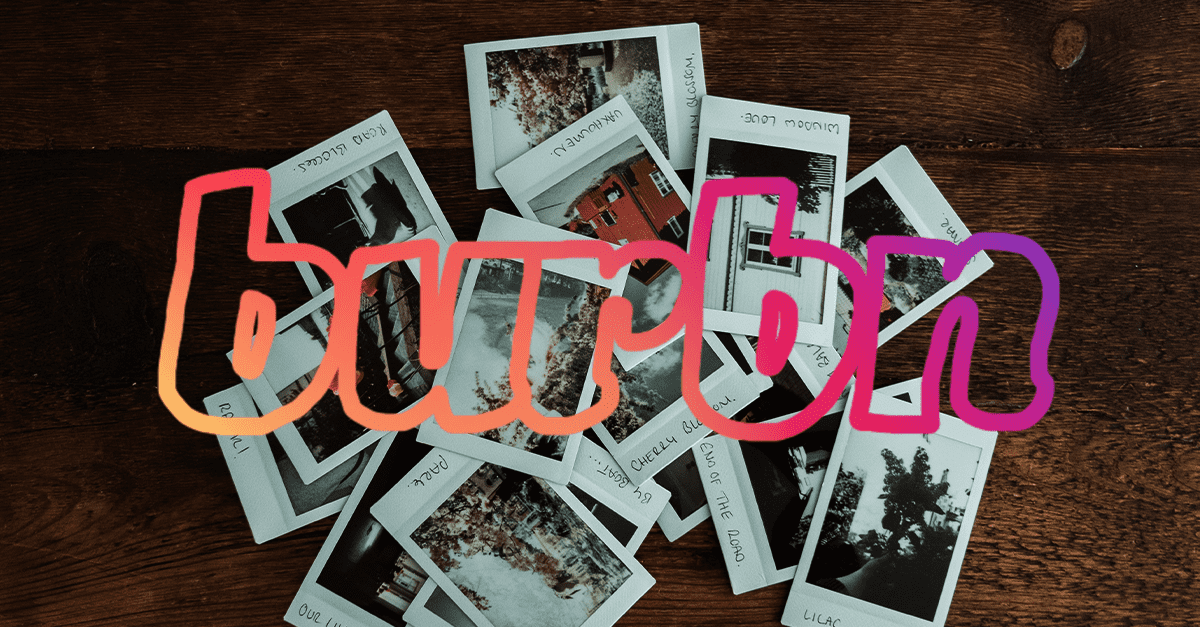The Secret to Happiness with Lori Gottlieb
Today, you’ll be hearing from writer and psychotherapist, Lori Gottlieb. Lori is the author of the New York Times bestseller, Maybe You Should Talk to Someone. She also writes the weekly “Dear Therapist” advice column for The Atlantic and is the co-host of the iHeart Radio podcast “Dear Therapists.” Her TED Talk was one of the topmost watched talks of 2019. In this episode, Lori offers tips on having difficult conversations, why you should strive for ordinary, what the two kinds of anxiety are, and much more.
Need a sneak peek? Below are the main takeaways from the episode.
The Secret to Happiness: Strive for the Ordinary
Tip #1
“Freedom comes with responsibility. And if we take responsibility for our role in the story We might just have to change. And that’s the other common theme that I see in our stories change. Those stories sound like this. A person says, “I want to change.” But what they really mean is, I want another character in the story to change. Therapists describe this dilemma as if the queen had balls she’d be the king. I mean, it makes no sense, right? Why wouldn’t we want the protagonist who’s the hero of the story to change? Well, it might be because change, even really positive change involves a surprising amount of loss. Loss of the familiar, even if the familiar is unpleasant or utterly miserable. At least we know the characters setting and plot right down to the recurring dialogue in this story. You never do the laundry, I did it last time. Oh, yeah. When there’s something oddly comforting about knowing exactly how the story is gonna go every single time to write a new chapter is to venture into the unknown. It’s to stare at a blank page. And as any writer will tell you, there is nothing more terrifying than a blank page. But here’s the thing. Once we edit our story, the next chapter becomes much easier to write. We talk so much in our culture, about getting to know ourselves. But part of getting to know yourself is to unknow yourself, to let go of the one version of the story you’ve been telling yourself so that you can live your life and not the story that you’ve been telling yourself about your life.”
Tip #2
“First of all, I think that people are worried that somehow they’re being unkind by bringing something up, that’s uncomfortable, the kindest thing you can do is to have a conversation with somebody that is real and genuine and authentic. I think that the first way you start that is you start with yourself. So before you even get to the other person, you want to be able to say to them, to say to yourself, I’m being really kind, and I’m remembering their humanity. And I’m going to have this conversation in an open, generous, curious way. So I’m not here to set my agenda, necessarily. I’m here to be curious about their experience. So we together can come to some kind of understanding about each other that we didn’t have before. And I think that’s the framework that you’ve come into any hard conversation with.”
Tip #3
“So many times, we tend to not pay attention to what we’re feeling, because we immediately want to minimize it. Because we feel like well, I have a roof over my head and food on the table. So you know, this sadness that I’m experiencing this anxiety, this grief, whatever it is insomnia, whatever it is, we think, Well, you know, really, it’s nothing, I’ll just, I’ll just power through it stiff upper lip. But we don’t do that with our physical health, right? So something feels off in our bodies, we’re gonna go get it checked out. So you’re having like something you feel like a little something in your chest, or, you know, you might go to the cardiologist and say, like, what’s going on? Before you have a massive heart attack, but what we do with our emotional health, is, we feel like, it’s not worth pursuing, it’s not worth talking about, because other people have such bigger problems. So I’m not going to do anything about it. And then what happens is people land in my office, when they’re in a crisis, it’s like the equivalent of an emotional heart attack. And at that point, first of all, they’ve suffered unnecessarily for a long time. And also, it’s harder to treat, because now they’re in a crisis. And so I feel like, you know, there isn’t a hierarchy of pain, pain is pain and suffering is suffering. And so that’s why I remember when I was training, in fact, as an intern, I was like, How will I go from somebody who, for instance, has cancer, right? To somebody who’s like, you know, the babysitter stealing from me? Or, you know, why do I always have to initiate sex or, you know, one of those kinds of kinds of issues? And what I found, is that underneath the content, are the same kinds of universal questions. How do I trust? What does it feel like to be betrayed? How do I deal with uncertainty? And when we don’t talk about these things, our behaviors, our feelings come out in behaviors, they come out in different ways, they come out in an inability to sit still, in a short-tempered newness, in procrastination in self-sabotage, in what my colleague likes to call of the internet. She says it’s the most effective short-term non-prescription painkiller out there. So you just sit there and you’re like, numbing your feelings by just scrolling through things going down the internet, rabbit hole, you know, they’ll come out, these feelings won’t go away. And so I think that we really need to get rid of this idea of this hierarchy of pain that you have to meet a certain threshold of pain for it to be dealt with, or taken seriously.”
Tip #4
“You know, I had this patient whose mother would always make her feel incredibly guilty about every life choice that she made. And I said to her, just because she sends her guilt doesn’t mean you have to accept delivery. And I think the same thing is true about that voice in our heads, right? So every time you hear it, that doesn’t mean that you have to let it in, you don’t have to invite that voice into your head. So when you hear it, you can kindly ask the voice to leave. And you have to be really aware, you know, in the beginning, it’s really an exercise, it’s really I need to notice what this is, you know, it just thinks that we say to ourselves all day, like, oh my god, you’re so stupid for like something we did that if a friend did that, we would not think that person is so stupid. And we would certainly never say to them, you’re so stupid because you did this instead of that. You know, or just like we wake up and we look at ourselves in the mirror or walk out the door. And we’re like, God, you look terrible, right? Like, if your friend looked like that, you would not think that your friend looked terrible. So we do it constantly. It’s incessant. And so the first thing is like getting that under control.”
Tip #5
“It’s interesting because I think that at that point in my life, I was less risk averse than maybe I’d become. And so I think as a parent, it’s a different equation that you’re looking at. But so strange to me is, I don’t know why this was. But in my book, I write about, I’m seeing this young woman who goes on her honeymoon, and she comes back and she’s diagnosed with cancer. And it’s about sort of our relationship as she goes through this. And she said to me at one point, and I write about this in the book, where she says, why do people need a terminal diagnosis to really pay attention to what they want to do in their lives, we shouldn’t need that. And it occurred to me that we all have a terminal diagnosis. Life has a 100% mortality rate. And that’s not just for other people. And so I think we don’t know how we’re when we’re going to die, none of us really does unless we actually have some kind of terminal diagnosis right now. And so I feel like I had some sense of that at a young age, I don’t know why I didn’t have I wouldn’t have early exposure to death, there was just this sense of, I only get to live once. This is the time before I have a family when I’m free to make the choices that I want to make, and they won’t impact other people. And so I just did, I sort of went into that place of knowing inside that I think we all have that is very quiet. And most of us don’t listen to all that noise outside about what we should do, or what’s the practical thing that usually drowns out that voice inside that takes us to that place of knowing. And I’m not trying to get all woo-woo I don’t I feel like we all have this place where we trust ourselves where we know something, we have information. So many times people come to therapy, and they’re like, tell me what to do. And what I want to help them do is find the answer inside because it’s there. They just can’t hear it yet.”
Tip #6
“There are two kinds of anxiety and COVID is particularly relevant. There’s productive anxiety, which is anxiety when you’re reasonably worried about something and it motivates you to take action to keep yourself healthy, right? So productive anxiety is protective anxiety outside of COVID-19 I have this big project, you should be anxious about that. Because you want to do well. So it motivates you to really put in the effort. If you’re like yeah, I don’t really care. You’re gonna find it in during Coronavirus. Productive anxiety is there’s this virus out there and it’s dangerous. So I’m going to take measures to protect myself, I am going to wash my hands, I’m going to wear a mask, I’m going to stay inside all of those things. If you were not adequately worried about this, you would put yourself at risk and others at risk. So that’s productive anxiety, anxiety could be incredibly productive. Unproductive anxiety, on the other hand, is obsessive rumination. It’s what we do a lot of right we all do this where you’re checking the latest headlines. You’re thinking about something that might happen next week or the week after that’s bad. Something in the future arising catastrophizing, something that hasn’t happened yet and may never even happen. And yet you’re spending a lot of emotional real estate on it. That’s not helpful because it’s not helping you to move forward or to protect yourself like washing your hands or like doing well on a project. That kind of anxiety just keeps you stuck in place. So and so I think that what the reason that people go into the unproductive Have you know that obsessive rumination is when they’re feeling feelings that they don’t want to feel because they’re afraid of the feelings? And yet, in reality, our fear of feelings is scarier than the feelings themselves.”
Tip #7
“The secret to happiness. And the way to live, the so-called good life is to stop looking for happiness for our kids and for ourselves. Because in our culture, and for a certain group of people, I won’t name names. Happiness has become a drug that is as addictive as heroin. You put the needle in again and again, thinking that this or that will fill you up. When all it does is make you want another happiness hit more money, more success, more recognition. Or as I like to say, as a journalist, how many Bilanz does a person really need the key to the good life to strive for the ordinary over the special? Studies show that people who consider themselves to be ordinary which is kind of a dirty word in this room, are more contented in their lives than those who feel that they’re better than others. And let’s face it being better than others is a little bit about what special really means. As we saw in Ellen Galinsky’s national study of American kids, their message for their parents was simple to chill the heck out. Ask your grown-up kids what they remember most fondly about their childhoods. And it’s not the fancy vacations or the music camp or the $6,000 Princeton Review class that you got to help them get into the first-choice school that rejected them anyway. In my therapy practice, what people say is this, their fondest memories are playing Scrabble before bed, stirring pancake batter on a Sunday morning, tossing a ball out front hanging out in their pajamas until noon. And those silly inside-family jokes that still make them laugh 20 years later. So I asked you this, do you want to realize at the end of your life, that you stress yourself out chasing something that you had right in front of you all along, take the needle out and take a bubble bath instead.”
Connect with Lori Gottlieb:
Instagram: @lorigottlieb_author
Twitter/X: @lorigottlieb1
Website: https://lorigottlieb.com/
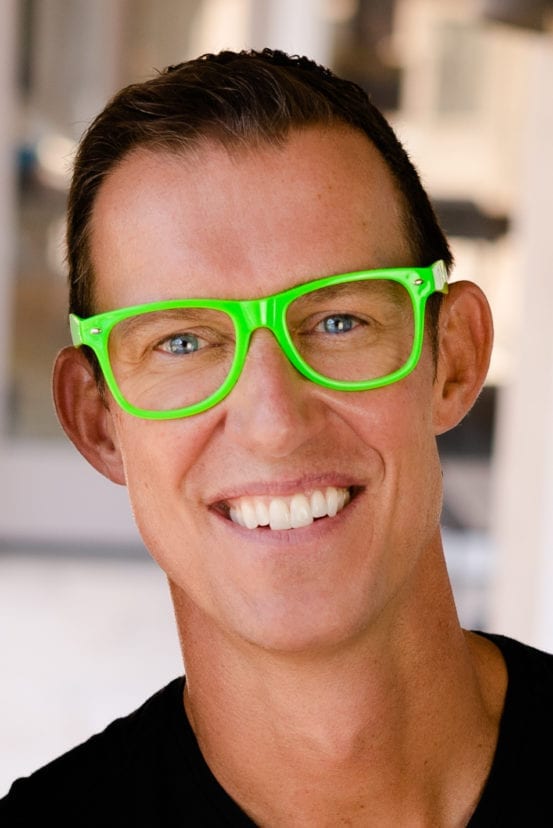
To ensure you don’t miss future episodes, subscribe to our podcast by clicking here >> Super U Podcast. We hope these tips help unlock and unleash your inner superpower!
The Super U Podcast is hosted by #1 bestselling author and Motivational Speaker Erik Qualman.

